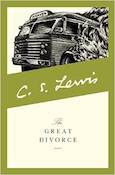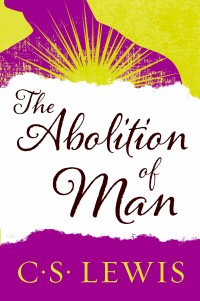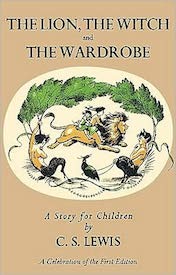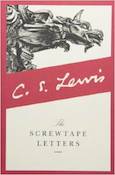The Great Divorce
Who but C. S. Lewis could take a bus trip from a rainy Hell, get out on the grassy out-skirts of Heaven, eavesdrop on the conversations of the ghostly damned, put orthodox theology into the mouth of one George Macdonald, and make it all add up to a serious and witty book on eschatology?
Since the appearance of his “Screwtape Letters,” most people have known that Mr. Lewis is a layman who writes better, more thoughtful and more popular theology than the clergy, that he is Fellow and Tutor at Magdalen College, Oxford, and that he will use well-nigh every literary device to tell others what he believes to be the truth. He has made use of allegory and novel, satire and serious essay, poetry and radiocast. In this latest book from his pungent pen he turns to fantasy—and, in a sort of “Alice in Wonderland” dream with a bit of Dante thrown in for good measure, he clothes with some substance of characterization the abstract arguments he originally used in several chapters in “The Problem of Pain.” What he says about the traditional subjects of eschatology (Death, Judgment, Heaven and Hell ) is important and worth saying, no matter how often and under what forms he says it.
His book grows out of the concept of a holiday for the damned, an excursion from Hell. Lost souls can take a trip by omnibus to the suburbs of Heaven, there to have another chance to choose to be saved. The choice, however, is real and must ire made. It is impossible to have both, and so, in the preface, the author explains:
Blake wrote “The Marriage of Heaven and Hell.” If I have written of their Divorce, this is not because I think myself a fit antagonist for so great a genius, nor even because I feel at- all, sure that I know what he meant. But, in some sense or other, the attempt to make that marriage is perennial. The at-tempt is based on the belief that some way of embracing both alternatives can always be found; that mere development or adjustment or refinement will somehow turn evil into good without our being called on for a final and total rejection of anything we should like to retain. This belief I take to be a disastrous error.
To illustrate his argument for this Divorce, Mr. Lewis introduces numerous Ghosts : the poet, never understood by parents or friends, always seeking Recognition and Appreciation; the whining Ghost, who has done his best and wants his rights; the Liberal Bishop, boasting of “honest opinions”; the cynic, who has. been everywhere and seen everything and terms it all a racket; the woman, whose only wish is to manage another’s life; the pitiable, possessive mother whose love for her son is selfishness itself.
Most of the celestial excursionists refuse to stay in Heaven. “Their fists are clenched, their teeth are clenched, their eyes shut fast. First they will not, in the end they cannot, open their hands for gifts, or their mouths for food, or their eyes to see.” Hell, then, is self-chosen, self-imposed. God lets them have their own will. -This is paralleled in the illuminating and disturbing scenes in Aldous Huxley’s “Time Must Have a Stop,” when Huxley describes Uncle Eustace’s introduction into eternity as a turning away from the light “to-wards the intolerable pain of derision and lust, compulsory, self-imposed, for ever and ever.”
George Macdonald serves as Teacher and guide amid the perplexities of Time and Eternity. Freedom and Predestination, as the choices of the Ghosts raise questions in the mind of the author and the reader. If these questions are finally unresolved, it is because Mr. Lewis knows they are beyond the limitations of the human mind. Nevertheless, he does some much-needed barnacle scraping on many of the senseless accretions obscuring the whole subject.
The author is a Christian, a rationalist and a romanticist. He claims to write the sort of books he would like to read but cannot find. His diction is pure and vigorous, simple and straightforward. And his simplicity is the result of knowledge and thought. Before long he will gain the Shakespearean reputation of being “full of quotations.”
Book Review from The New York Times, by George R. Stephenson
Tags: C.S. Lewis, The Great Divorce
- The Author
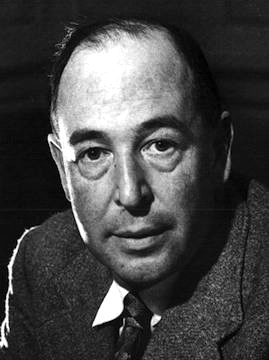
C.S. Lewis
Clive Staples Lewis (1898-1963) was one of the intellectual giants of the twentieth century, and arguably one of the most […] More about C.S. Lewis.
- Books by the Author
- Related Articles
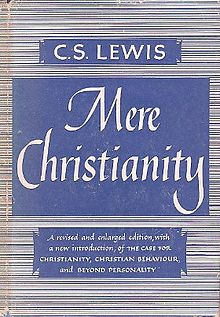
Mere Christianity
C.S. Lewis’ masterful work Mere Christianity has long been regarded as a classic of Christian writings. It is notable for […]
Ratings Details




